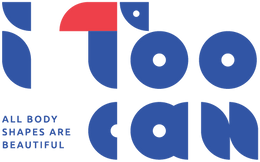iToocan suggests..get some sleep!
Many articles and analyzes have been made about exercise and nutrition as important factors for our well-being and they have been adequately covered, but science shows that the most important factor for our physical and mental well-being is sleep. We realize as adults that sleep is good for us, we know it instinctively, when we sleep well, we feel good. However, until recently the scientific information we had about sleep was minimal. We knew sleep was important but we didn't know why. Modern neuroscience proves today that sleep is not only important, it is really very important!
The reasons for this are complex:
-Sleep restores the immune system
-Balances hormones
-Reduces blood pressure
-Clears toxins from the brain
-Restores the digestive system.
-Helps us process information and turn our experiences into memories. REM sleep (dreams) is an integral part of our well-being.
More than diet or exercise, sleep is the most important factor that contributes to our physical and mental well-being, but with the modern lifestyle we follow, we seriously compromise both the quality and quantity of our sleep. Adults need seven to nine hours of sleep each night. However, according to research, the majority of European workers sleep less than six hours a night, while a large percentage suffer from insomnia.
So what are the factors that negatively affect sleep? Health and lifestyle issues such as:
-Excessive consumption of alcohol and sugary drinks
-Smoking
-Lack of physical activity
-Obesity
-Mental health problems
- Stress at work or at home
-Financial concerns and more.
-The lack of synchronization with our natural circadian rhythms and the disruption of the production process of melatonin, a necessary hormone for sleep
Basically, life. Modern lifestyle affects sleep.
And now don't throw up your hands in despair, full of guilt, like when you read all this stuff about diets and white sugar, feeling like the world is going to burn! Guilt is not the purpose of this article! Getting stressed because you don't get enough sleep and waking up in the middle of the night stressed because you don't sleep is definitely not our goal 😊
What we're essentially suggesting here is a questioning of some habits and behaviors that aren't necessarily serving you as well as you thought and that might not be too difficult to change.
Suggestions for better sleep:
RESTLESS SLEEP
-Go to bed and wake up around the same time every day.
-Get some fresh air and sunlight during the day.
-Don't drink coffee in the afternoon
-Make sure your room is dark.
-Don't use your cell phone in bed
FIND WHAT SUITS YOUR SLEEP
Whatever sleep pattern you choose, make sure you get all stages of sleep and plenty of REM (which generally happens later in the night).
EARLY TO BED
Try to get to bed early. There are many good things you can do in bed besides sleep, and it's a great way to relax and prepare your body and mind for rest.
ALCOHOL
Alcohol greatly disrupts (even destroys) REM sleep. So be careful.
DO NOT EXCEED YOUR LIMITS
It is important to be active, it is good that our sleep and rest are not compromised.
DIET
At iToocan we are not in favor of diet culture, we are closer to intuitive eating, so we are not going to advise you to diet here. However, we encourage you to perhaps add to your diet foods that may help sleep (for example fish, yogurt, black rice, etc.)
MEDITATION
A gratitude meditation may help just before bed: It calms the body as the heart rate slows, helps reduce negative thoughts and leads to peace of mind.
Our brain during sleep repairs neurons, creates new connections and 'sorts out' memories. Sleep has been an evolutionary strategy of the human species, so it provides us with powerful benefits to balance the risks. Sleep is not a luxury, but it is necessary for our physical and mental health.
So sleep!! 😊
- iToocan Team
Sources :
https://www.ncbi.nlm.nih.gov/pmc/articles/PMC6557693/
https://meygeia.gr/dialogismos-prin-ton-ypno-kai-pos-na-ton-kanete-sosta/
https://www.kathimerini.gr/life/health/988877/ta-tessera-mystika-toy-ypnoy/
https://www.ncbi.nlm.nih.gov/pmc/articles/PMC6765101/
Photo by Simon Infanger on Unsplash
